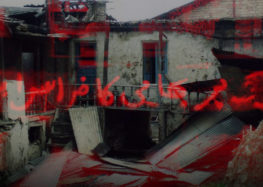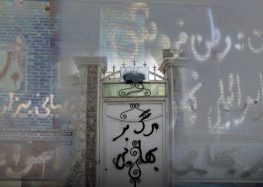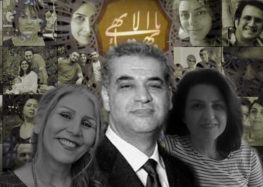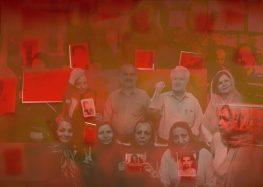Baha’i Community in Peril
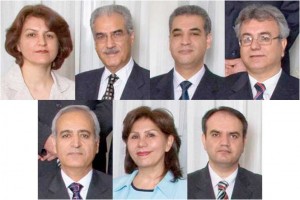 (17 February 2009) Attacks on the Baha’i community in Iran have reached alarming levels, including semi-official calls for its “utter destruction,” the International Campaign for Human Rights in Iran said today. The Campaign called on the Iranian government to immediately cease its increasingly violent threats against the members of the Baha’i Faith, and to release members of the Baha’i Faith who are being held without charge. The Campaign also called on the international community to strongly condemn the Iranian government’s escalating persecution of the Baha’i religious minority.
(17 February 2009) Attacks on the Baha’i community in Iran have reached alarming levels, including semi-official calls for its “utter destruction,” the International Campaign for Human Rights in Iran said today. The Campaign called on the Iranian government to immediately cease its increasingly violent threats against the members of the Baha’i Faith, and to release members of the Baha’i Faith who are being held without charge. The Campaign also called on the international community to strongly condemn the Iranian government’s escalating persecution of the Baha’i religious minority.
The government has intensified its attacks on the members of the Baha’i Faith during the past year. There are currently at least 30 Baha’is in detention throughout the country. The Baha’is, numbering inside Iran at about 300,000, are a religious minority that is not recognized under Iranian law. For the past 30 years they have been targets of official discrimination, and about 200 members have been executed or murdered since the 1979 revolution.
On 11 February 2009, a Judiciary official identified as Judge Haddad, said that the trial of seven leaders of the Baha’i community will take place soon, according to the Iranian Students News Agency. The report quoted Haddad as saying the charges against the Baha’is include “spying for Israel, insulting the sacred, and propaganda against the system.” The seven Baha’i leaders have been in detention since March 2008,, without access to legal council. Their lawyer, Shirin Ebadi, the 2003 Nobel Peace Laureate, told the Campaign that she has not yet been provided any details about their indictment and prosecution. She said she expected to receive their file in the coming week before their trail is held.
Officials escalated their attacks on the Baha’i Faith in what appeared to be a public relations ploy to influence the outcome of the case ahead of the trial. On 15 February 2009, Iran’s Attorney General, Ayatollah Ghorbanali Dorri-Najafabadi, in a letter to Intelligence Minister Mohsen Ejei, said that the Baha’i Faith “in all its levels is illegal and unofficial. Their dependence on Israel and their enmity with Islam and the Islamic government is certain and their danger to national security is documented,” the semi-official Fars News agency reported.
The report by Fars News concluded by interpreting the letter as a license “to decisively confront the elements of [this] organization, until its utter destruction is achieved.”
The Campaign called on the Iranian Judiciary to hold the upcoming trial according to international fair trail standards and to guarantee the rights of the accused in an open and transparent environment.
“The charges leveled against the leading Baha’is are very serious. All indications, from their detention to their upcoming prosecution, suggest that the charges are unfounded and politically motivated,” said Hadi Ghaemi, the Campaign’s spokesperson. “The prosecution will have no credibility if it fails to provide evidence publicly to prove these charges, and if no proper defense is possible. Under such circumstances, the trial will be no more than a witch hunt,” he added.
The Iranian government has consistently accused the Baha’i Faith of being an instrument of the Israeli government but has never provided any evidence to support the charge. Official propaganda has always pointed to the presence of the Baha’i World Center in Haifa, Israel. However, the establishment of the Center dates back to the Ottoman Empire in 1868, when founders of the Faith were exiled there.

